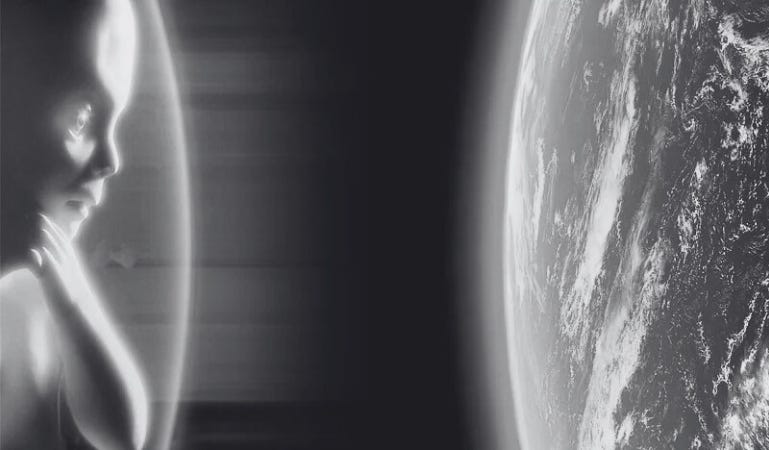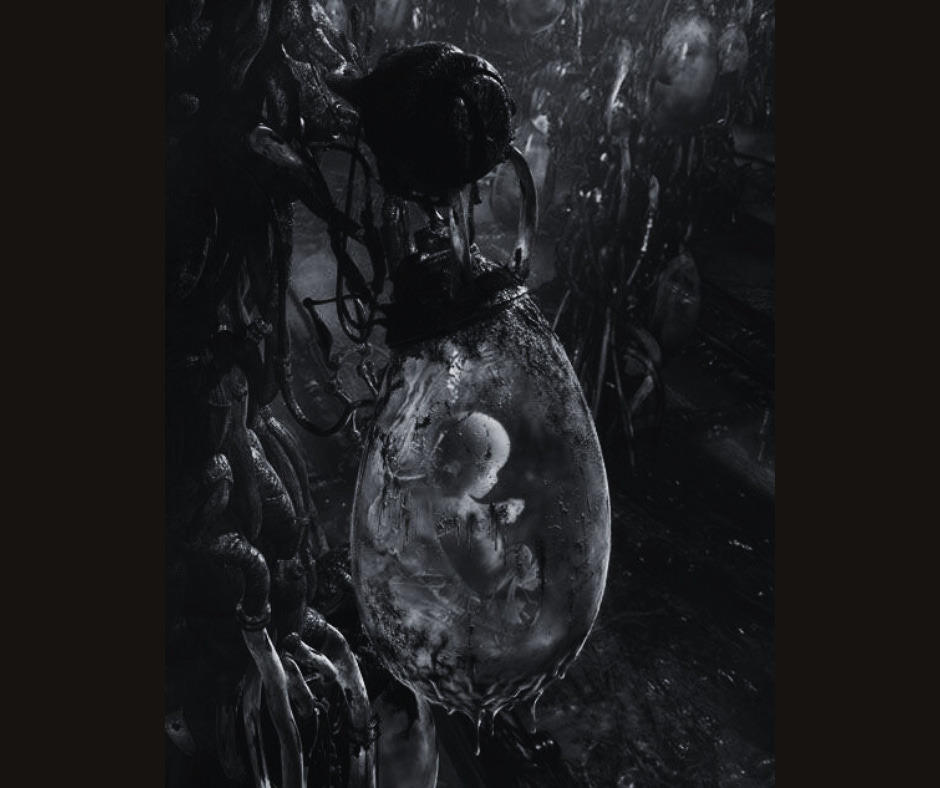The Real Reason You Feel Stuck (What The Majority Of People Fail To Question)
Freedom requires the courage to think and choose our worldview for ourselves
Most people care about having the freedom to make their own choices more than anything else in their life.
This is a freedom that people have been, and are, willing to die for.
It is true that there are certain belief systems which require that we submit to authority. But even still, pretty much everyone values the freedom to choose that belief system in the first place — the freedom to give up certain freedoms.
No one would willingly give up this freedom, since it is tantamount to death.
At the same time, by the age of adulthood every human being has inherited, through sheer chance, a particular worldview that has had an overwhelming influence on their personality, values, beliefs, and actions.
In short, a significant part of our lives has been pre-determined by something we did not choose.
In last week's article, I coined the term birthview to refer to the worldview we are born into (you can read that below).
If You Don't Understand Anyone Else's Worldview, Then You Don't Understand Your Own
“For any of us to be fully conscious intellectually we should not only be able to detect the worldviews of others but be aware of our own — why it is ours and why in light of so many options we think it is true”
We do not choose our birthview, and yet, most people are incredibly happy to defend it, identify with it, and live their entire life without questioning it.
This is deeply paradoxical.
If someone with a different worldview were to try and impose it on you, I suspect that you would view it as an existential threat.
And yet, so many of us, myself included, have allowed nature, chance, and the culture we were randomly born into, to impose itself on us.
What should we do?
Sapere Aude!
This is the motto of the European Enlightenment.
It means “Have courage to use your own understanding!”.
Nature has given human beings a way out of the unfreedom of our birthview.
It lies in our intellectual freedom to question, criticize, scrutinize, construct, reinvent, rebuild, create, and imagine.
“This is your last chance. After this, there is no turning back. You take the blue pill - the story ends, you wake up in your bed and believe whatever you want to believe. You take the red pill - you stay in Wonderland and I show you how deep the rabbit hole goes” -Morpheus, The Matrix
In the Matrix, Neo is given a choice between the red pill and the blue pill, but it is framed as a test.
Morpheus is testing Neo to see if he is “the one”, to see what he will choose when all the cards are on the table.
Thankfully, we are in a better situation than Neo.
We are given the same choice every single day.
And yet, millions upon millions of people continue to choose the blue pill everyday.
Some of these people aren't really making a choice.
They are what
would call an NPC, or non-player character.Others know that something is off.
They know that there is something more to life and existence than what they have been told, but can't quite put their finger on it.
Naturally, many people are afraid of exploring what this unease really means.
“What you know you can’t explain, but you feel it. You’ve felt it your entire life, that there’s something wrong with the world. You don’t know what it is, but it’s there, like a splinter in your mind, driving you mad” Morpheus, The Matrix
When it comes to who we are and what we are to become, there are really only two options.
On the one hand, we can take the blue pill everyday and simply live out our birthview.
We can grow and develop within it, but we never take control of it.
We are, in essence, happy to allow it to control us.
This is not necessarily a bad thing.
I suspect that many people would have no problem with this.
This acquiescence may even be a result of their birthview shaping them into the kind of person who is happy to live passively.
It is important to be clear about what this decision (or lack of decision) amounts to.
It amounts to willingly taking the risk of never knowing whether we made the right choice.
It amounts to living in a permanent overarching state of unfreedom, passivity, and resignation to life.
It is status quo bias, written across a lifetime.
Personally, I find few things more terrifying and repulsive than such a condition, but I am also aware of the irony in the fact that this attitude is itself unsurprising for someone who was raised within my birthview.
Is it possible to properly evaluate or judge such a choice from a neutral point of view? Are we really better off actively fighting for freedom until the bitter end, no matter how difficult?
It is hard to say.
All I know is that, from my life experience, everyone I have met is also repulsed by strangers, foreigners, and outsiders trying to dictate how they should live and undermine their self-determination.
This attitude exists alongside the widespread and unquestioned acceptance of our birthviews.
Something's gotta give.
What about option two?
Option two is to realize that we are a byproduct of our birthview, and commit oneself to actively renegotiating what this means for oneself.
It is to explore whether our birthview is aligned with who we currently are and, also, who we ideally want to be.
It is to choose freedom, self-determination, and agency over discomfort.
This doesn't mean that we will end up somewhere else entirely.
We may never escape the gravitational pull of our birthview.
But, it does mean that we tried and that we are the sort of person who returns home only after deciding for themselves to do so.
This has the benefit that we choose to be where we are, no matter how good or bad.
This option, however, also has its risks.
It may be uncomfortable for a while, or forever.
It may put us at odds with our family and friends. It may make us feel permanently at sea, or homeless. We may realize that our birthview was actively harming us and find ourselves forced to face these problems head on.
I am not going to tell you what to choose.
I will say, though, that if you are stuck or struggling, it may just be because your birthview is not serving your life and that you need to take back control over your worldview and redefine it for yourself.
We live in an age where the internet has allowed people to rapidly change their beliefs (for better and for worse).
We must be fully responsible for what we believe and who we become.
In most of human history, it was very difficult to think freely.
They had a good excuse.
Very few people today have an excuse.
While it isn’t possible for everyone to change their external circumstances, it is now more possible than ever for human beings to change their internal circumstances.
How do you question your birthview? How do you take back control of your thoughts and feelings? How do you redefine and reconstruct who you are?
These are all questions that I will answers in the next several posts, where I go even deeper into worldviews, micro-philosophy, and self-creation.
-Paul








Superb post, Paul. I left Christianity (my birthview) over a year ago and I’m currently writing about my deconstruction on my Substack. I think you’re accurate in saying that a lot of people acquiesce because they never question their birthview. I never did for a long time, until I got fed up not really feeling like I truly chose Christianity. So, I set out to figure out what it meant for something to be true and to see if Christianity held up to that standard of truth.
After doing it, I thought “Why don’t more people do this?” That’s something I’m still wrestling with. Perhaps it’s too intellectually difficult or people have ideas that put them in what I call “ideational gridlock”—blocking them from ascending from their current worldview (until they rescind the ideas causing the gridlock).
I’m planning on writing about ideational gridlock.
@Paul Musso, PhD - This is masterful! Your articulation of birthview gives a language to, and a way of thinking about, the scaffolding of our identity - our assumptions, allegiances, even our discomforts which are largely inherited before we are conscious enough to consent. And yet we cling to it, ongoingly - even consciously - often fiercely, mistaking comfort and familiarity for freedom.
I very much appreciate how you hold the paradox: that questioning our worldview can feel like a betrayal of our sense of self, when in fact it may be the beginning of becoming one. What you’re offering is not merely a philosophical prompt, but an existential dare to figure out how to meet ourselves before the script was laid down in our unconscious. I feel you are speaking my language.
Your distinction between passive absorption and active renegotiation calls to mind Winnicott’s idea (Psychoanalytic theorist) that it is only the true self who can feel real. Reclaiming authorship of our inner life may not always offer comfort but it does offer truth and perhaps, in time, a deeper belonging to the world and to ourselves.
I always love your posts Paul and I look forward to many more to come. In my way of thinking, you're not just exploring micro-philosophy you’re inviting macro-awakening.